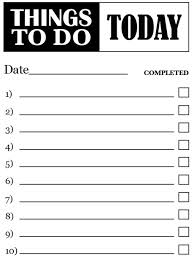 A friend, business associate, or recruiter calls you with a great job opportunity. They ask you to send your resume TODAY. Yes, NOW, right now. Are you ready to leverage this opportunity?
A friend, business associate, or recruiter calls you with a great job opportunity. They ask you to send your resume TODAY. Yes, NOW, right now. Are you ready to leverage this opportunity?
I regularly get calls where the caller says, “Cindy, this is Joe XX. My friend, Dan XX referred me to you and I need a resume today. Can you help?” I both love and hate these calls. I love that the caller is a referral from a client/former client and I love to serve and help people. I hate the call because often I am busy and I know my key referral partners are busy, too. Most of all, I hate these calls because I can hear the panic in the caller’s voice as she describes a great position only to have a resume that is not updated, not ready to send. Then, when I ask about her LinkedIn profile, the stress I hear doubles.
On this issue, here is my one suggestion: act like a Boy Scout and “Always Be Prepared.”
If you have not looked at your resume in the last 6 months, it is time to give it an update. Do it before you need it.
Business owners, this goes for you, too. Banks, investors and strategic partners might ask you for your resume.
Also, if you are looking for a new position or seeking a promotion and you have been in the market for the last 90 days and are not landing interviews, it is time to take a serious look at your resume. Your resume may well need an update.
Here are just a couple of reasons why you should update your resume:
- The studies, research and technology that will be used in addition to a human looking at your resume have changed. There have been many changes in just the last six months.
- Many changes were implemented during the Great Recession and even more has changed since it ended. With the growth of ‘Big Data’ there is even more information you can leverage to help give your resume more IMPACT and help you land an interview. There is data on everything from eye-tracking studies, to keyword usage, to word count studies — confirming every word on your resume does indeed count. New research is released all the time.
A recent study by Modestino et. al highlights what the study calls ‘upskilling’ by employers. It paints a clear picture that employers are not looking for the same skills today that they were seeking in 2007, 2010 or 2012. If you have not updated your resume to reflect your new skills, you might miss a good opportunity.
The study notes that employers have raised the skill requirements within specific types of jobs. Understanding these changes in the market place, as well as the impact of time to hire for top professionals like you, is important. Should you be working with a coach or other HR professional who keeps up with what employers are doing and what they are seeking in the candidates they want to hire?
I understand you are busy. Most days it is tough just keeping up with your areas of expertise. That is why I ‘keep up’ for my clients, past and present. Don’t wait for the phone call to update your resume. That added stress to your life is completely unnecessary — unless, of course, you are a stress junkie. Update your resume regularly. Do so on your time frame, not someone else’s. If you are looking for information and resources on updating your resume, check <here>.
Even in a tighter labor market (think declining unemployment rates), employers continue to search for highly skilled workers for many different positions. Employers call it ‘raising the bar.’
If it is time to you to update your resume, we are ready to help you. If you are a do-it-yourself person, you might find these resources <link to the word “resources”> helpful.
If you want to avoid missing an opportunity that only comes along once in awhile, update your resume this month. You can leverage your most recent experience, insure your resume is ready to go and communicate your unique value at a moments notice. Go <here> to take advantage of one-on-one support with our May only special.
Summer’s coming — be ready for fun, relaxation and to take advantage of opportunities. Avoid the run-of-the-mill update that looks like you haphazardly plugged in your last job and attached it to an email with little or no thought. When you land the interview you may be scrambling to explain why your resume looks tossed together.
If you aren’t ready for the call when it comes, you may miss out on increased earnings, a great culture, and the launch pad for your next 5 to 10 years of success. Employers who are seeking to hire professionals with relatively high skills expect you to be ready. Are you?
Ditch the stress of missing out on something you want to do. Ditch the stress of staying up all night to update your resume (you are not a college co-ed these days and paychecks of that size are, thankfully, gone). Get help now and be ready to land the job you want at the salary your desire FAST and with less stress.
Do you have a question or comment? Post it below or give me a call.
accelerate your search, Career Management, job interviews, personal branding, resume
 Summer is in full swing. If you are ready to move to the next level, now is the time. Life is ready for you — it always has been.
Summer is in full swing. If you are ready to move to the next level, now is the time. Life is ready for you — it always has been.


 At the end of the week we, in the United States, will celebrate July 4th — our Declaration of Independence in 1776.
At the end of the week we, in the United States, will celebrate July 4th — our Declaration of Independence in 1776.
 A friend, business associate, or recruiter calls you with a great job opportunity. They ask you to send your resume TODAY. Yes, NOW, right now. Are you ready to leverage this opportunity?
A friend, business associate, or recruiter calls you with a great job opportunity. They ask you to send your resume TODAY. Yes, NOW, right now. Are you ready to leverage this opportunity?
 “Make each minute count.” – Dave Edwards
“Make each minute count.” – Dave Edwards Finding yourself without a job and in a job search can be fun, exciting and full of adventure. It can also be filled with fear, questions and be a very unproductive time.
Finding yourself without a job and in a job search can be fun, exciting and full of adventure. It can also be filled with fear, questions and be a very unproductive time.

